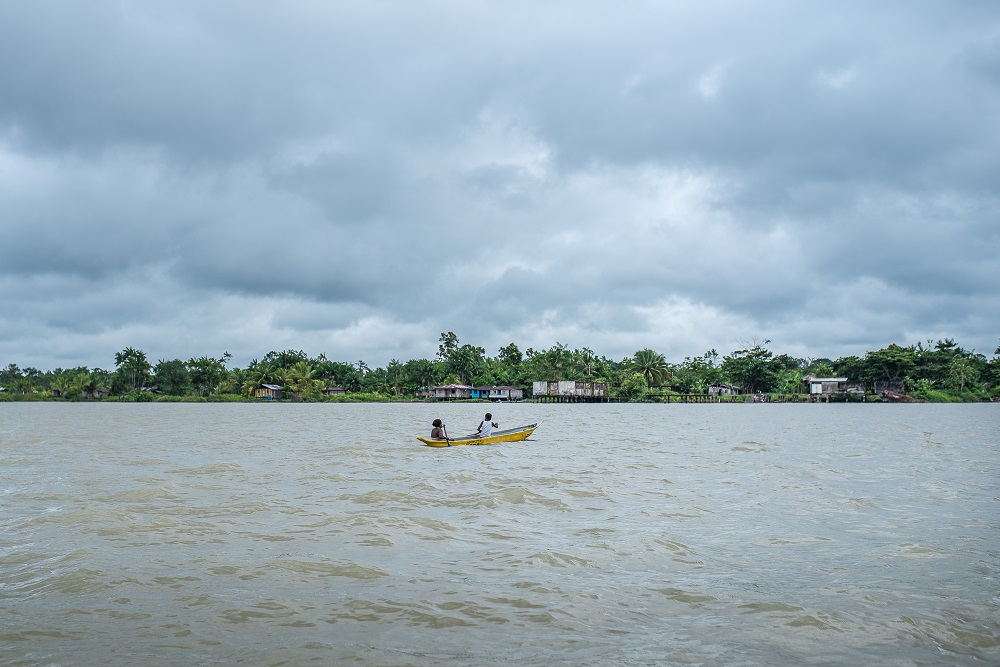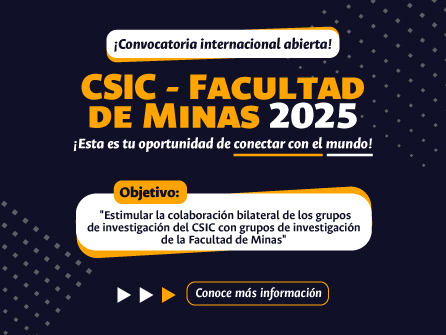Ethnographic account of the first field trip. After the refreshing ritual officiated by Don Romilio in the big house and the breakfast offered by Governor Gladys in the handicraft workshop, a space for socializing was opened and I took advantage of it to approach some craftswomen who were showing and selling their work...

While I was browsing through the samples, I noticed a woman washing clothes on a foal on the riverbank, a scene that I found magnetic. I had decided to venture out in one of these boats because my mother, in her childhood stories, says that this boat was her way of moving along the Chagüí River in the past, and according to her, "knowing how to paddle is something that runs in your blood". Wanting to prove this theory, I resorted to the audacity of my character and approached the washerwoman. She was a woman with a coppery complexion and round figure who was submerged in the river from her hips to her feet at perhaps two meters from the shore. She also had her little colt floating, tied at one end to a pole that held it so that the current would not carry it away and inside the boat there were approximately 5 soapy garments that she was scrubbing with a somewhat worn-out brush.
When I was close, I greeted her. However, I noticed with some astonishment that she frowned, stiffened her face gestures, and did not respond to my greeting. Her evasive attitude showed that my presence caused her discomfort. Despite this, I insisted on speaking with her, and although the interaction was somewhat awkward, I was able to learn that the name of my interlocutor was Delia. Apparently, she was a woman who belonged to a fishing family, because inside the tray of rinsed clothes there was a fisherman's net.
I did not want to give up in the face of Delia's refusal, so I respectfully and bluntly expressed my desire to ride in her colt. When I made this request, she silently looked me in the face for a few seconds, and then up and down as if looking for something. Then, she vacated her colt, and without a word, she gave it to me. I asked about the wood it was made of and she replied in a parsimonious manner that it was chimbuza. I felt very excited to have that vehicle at my disposal, so I brought it close to the shore and embarked, trying to observe the behavior of the current and the orientation of the water to trace the trajectory of my little journey. Suddenly, a strange and sudden sensation petrified me: I felt so afraid to make any maneuver in that boat that I gave up the idea immediately, but I sat there in silence, somewhat dismayed, perhaps for a minute and a half.
Since she had finished rinsing the five remaining garments, Delia had been swimming in the river as if she were a fish. She watched me motionless in the vehicle and approached the shore to tell me, "Foals are jealous creatures and not just anyone can handle them". Due to the sudden sensitive experience that I had had, I corroborated the veracity of her words, and I understood that this would not be my moment to surf the river, so I handed it over to her and apologized for the inconvenience.
Delia and her family did not participate in our meetings, but the interaction with her – which I now consider invasive of my part – allows me to reflect on the role of researchers when they arrive in a place they hardly know. In this regard, it is valid to point out that the ascription we have with academic entities makes us materialize asymmetrical power relations in the territory; that is, studied individuals and outsiders over local people. Therefore, it is important not to accentuate inequalities in fieldwork, remembering it is not enough just to be well-intentioned. On the contrary, it is necessary to be critical, sensitive, and self-reflective to advance in the construction of relationships with a greater degree of trust and a healthy balance.
Author
By Steph P. Ocampo. Anthropology student at the Universidad del Cauca.
May 03,2022






